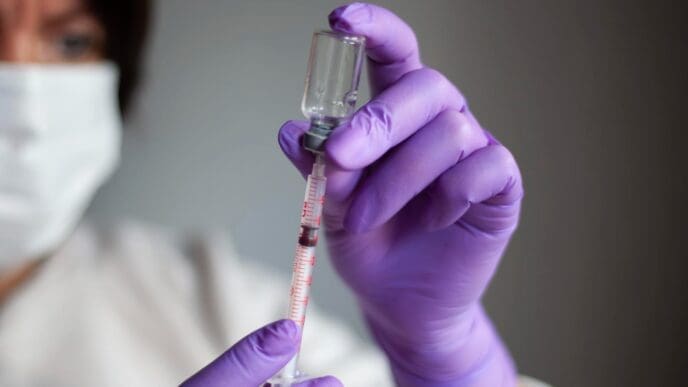A growing global movement known as “sober curious” is prompting millions of people, particularly millennials and Gen Z, to critically re-examine their relationship with alcohol. This cultural shift is not about addiction or mandated abstinence, but rather a voluntary and mindful choice to drink less—or not at all—in pursuit of improved mental and physical well-being. Driven by a desire for better sleep, reduced anxiety, and greater clarity, individuals are questioning the automatic role alcohol plays in their social lives and personal routines, sparking a revolution in how society views sobriety.
What Exactly is the Sober Curious Movement?
The term “sober curious” was popularized by author Ruby Warrington in her 2018 book of the same name. It perfectly encapsulates the essence of the movement: to approach drinking with curiosity rather than on autopilot. It involves asking yourself questions like, “Why am I drinking right now?” “How does alcohol actually make me feel?” and “What would my life be like with less of it?”
Unlike traditional sobriety programs such as Alcoholics Anonymous (AA), which are designed for individuals with alcohol use disorder (AUD), the sober curious movement is for anyone. It primarily speaks to the vast population of “grey area” drinkers—people who may not have a clinical dependency but still feel that their alcohol consumption negatively impacts their health, happiness, or goals.
This approach reframes sobriety not as a state of deprivation, but as an act of self-care and empowerment. It provides a non-judgmental framework for people to experiment with reducing their alcohol intake without the pressure of committing to lifelong abstinence. For many, this means participating in month-long challenges like “Dry January” or “Sober October,” while for others, it means permanently adopting a teetotal or “mindful drinking” lifestyle.
The Driving Forces Behind the Trend
The rise of sober curiosity is not a random phenomenon but the result of several converging cultural and societal shifts. A deeper understanding of these drivers reveals why questioning our collective drinking habits has become so appealing to so many.
A New Focus on Holistic Wellness
The modern wellness industry, valued at over a trillion dollars, has fundamentally changed how we think about health. It promotes a holistic view where mental, physical, and emotional health are interconnected. Within this paradigm, alcohol—a known depressant and carcinogen—is increasingly seen as incompatible with goals like optimizing sleep, eating clean, practicing mindfulness, and maintaining a rigorous fitness routine.
As people invest more time and money into their well-being, the “empty” calories, poor sleep, and next-day fatigue associated with drinking become a much harder sell. The sober curious individual sees reducing alcohol as another tool in their wellness toolkit, alongside yoga, meditation, and a balanced diet.
Increased Mental Health Awareness
Perhaps the most significant driver is the growing public conversation around mental health. The link between alcohol and mental health conditions like anxiety and depression is well-documented by science. Many people use alcohol to self-medicate social anxiety or unwind from stress, but this often backfires. Alcohol can disrupt neurotransmitters in the brain, leading to a rebound effect of heightened anxiety and low mood once it wears off—a phenomenon popularly known as “hangxiety.”
As awareness of this connection grows, more people are concluding that the temporary relief offered by alcohol isn’t worth the subsequent mental toll. Choosing sobriety or mindful drinking becomes a proactive strategy for managing anxiety, stabilizing mood, and building genuine emotional resilience without a chemical crutch.
The Power of Digital Community
Social media has played a pivotal role in destigmatizing sobriety and building a community around the sober curious identity. Platforms like Instagram, TikTok, and Reddit host vibrant communities where people share their journeys, offer support, and celebrate milestones. Hashtags like #sobercurious, #soberlife, and #alcoholfree have millions of posts, creating a sense of solidarity.
This digital ecosystem provides the support that was once primarily found in formal recovery groups, but in a more accessible and less intimidating format. It allows individuals to find role models and peers who demonstrate that a fulfilling, fun, and socially active life is not only possible without alcohol, but often enhanced by its absence.
The Science-Backed Benefits of Drinking Less
The decision to reduce alcohol consumption is supported by a wealth of scientific evidence highlighting its positive impact on nearly every aspect of health. These benefits are often noticeable within just a few weeks of cutting back.
Improved Physical Health
One of the first benefits people report is dramatically improved sleep. While alcohol can make you feel drowsy and fall asleep faster, it significantly disrupts the quality of your sleep, particularly the restorative REM stage. By removing alcohol, you allow your body to complete its natural sleep cycles, leading to more energy and better cognitive function during the day.
Other physical benefits include clearer, more hydrated skin, potential weight loss due to the high calorie count of alcoholic drinks, and a stronger immune system. In the long term, reducing alcohol intake lowers the risk of developing serious health conditions, including several types of cancer, liver disease, heart disease, and high blood pressure.
Enhanced Mental and Emotional Clarity
Mentally, the rewards are just as profound. Without the brain fog and emotional volatility that often accompany regular drinking and hangovers, people report feeling sharper, more focused, and more emotionally stable. The absence of “hangxiety” is a frequently cited benefit, allowing for calmer and more present mornings.
This newfound clarity can lead to better decision-making, increased productivity, and a greater capacity to handle life’s stressors. It also frees up mental and emotional energy that was previously spent planning for, engaging in, and recovering from drinking.
How to Explore a Sober Curious Lifestyle
For those interested in exploring their own relationship with alcohol, the journey doesn’t have to be intimidating. The key is to approach it with an open mind and a sense of experimentation.
Start with a Defined Break
Committing to a short-term break, like a “Dry Month,” is an excellent entry point. It provides a clear timeline and a concrete goal. This period allows you to observe how you feel physically and mentally without alcohol, gather data on its true impact on your life, and break habitual drinking patterns.
Practice Mindful Drinking
If you choose to reintroduce alcohol after a break, you can do so more mindfully. Before you have a drink, pause and ask yourself why you want one. Is it a genuine desire to savor the taste, or is it a response to social pressure, boredom, or stress? This simple pause can be a powerful tool for making more intentional choices.
Discover the World of Non-Alcoholic Alternatives
The sober curious movement has fueled a massive boom in the non-alcoholic (NA) beverage market. Gone are the days when the only options were soda or juice. Today, you can find sophisticated, high-quality NA beers, wines, and spirits that mimic the taste and ritual of their alcoholic counterparts.
Exploring these alternatives can make socializing without alcohol feel more inclusive and enjoyable. Having a craft NA beer or a complex mocktail in hand can satisfy the ritualistic aspect of drinking without any of the negative side effects.
Communicate Your Choices
Navigating social situations can be a major concern for the newly sober curious. It’s helpful to have a simple, confident response ready. You don’t owe anyone a detailed explanation; a simple “I’m not drinking tonight” or “I’m taking a break from alcohol for my health” is usually sufficient.
True friends will respect your decision. You may even find that your choice inspires others to examine their own habits.
A Lasting Cultural Shift
The sober curious movement is more than a fleeting wellness trend; it represents a fundamental shift in our collective relationship with alcohol. It champions intentionality over impulse and empowers individuals to define what a healthy and fulfilling life looks like for them. By questioning the default status of alcohol in our culture, this movement is carving out a new, more inclusive space where sobriety is not just accepted, but celebrated as a valid and powerful choice for well-being.












